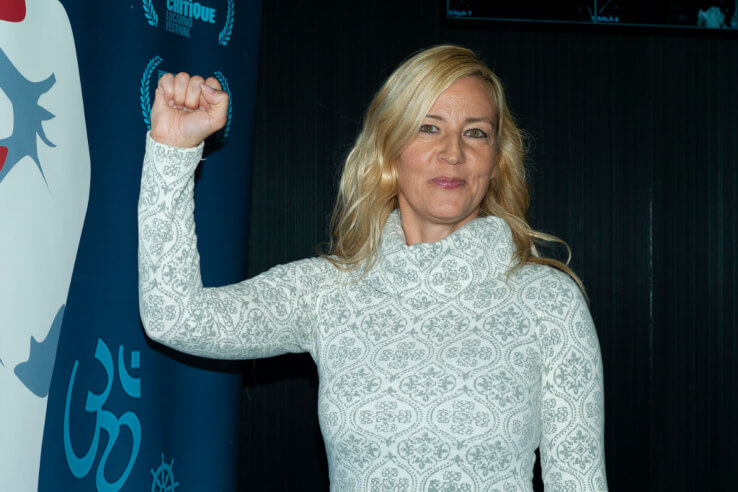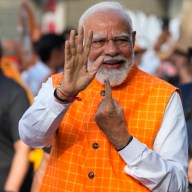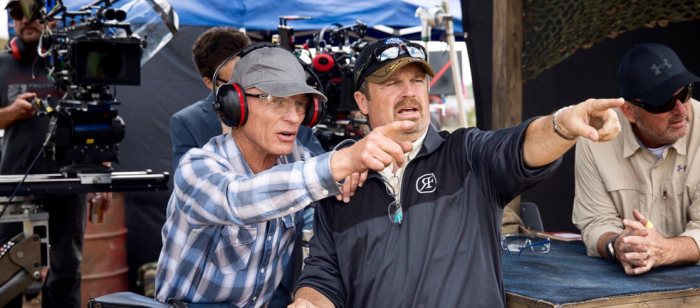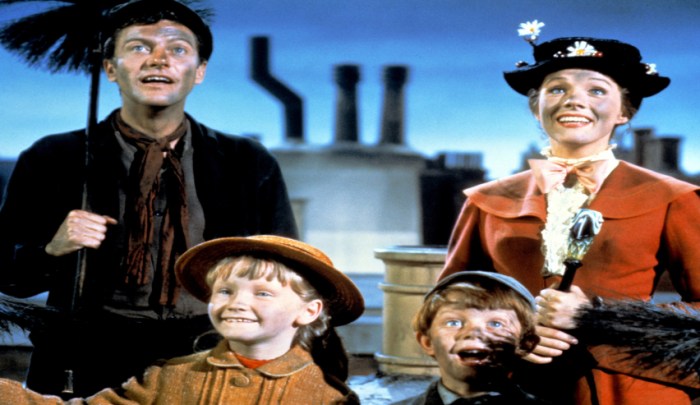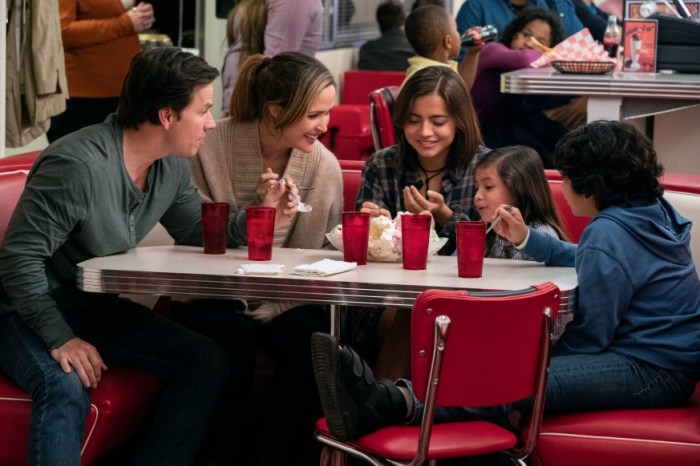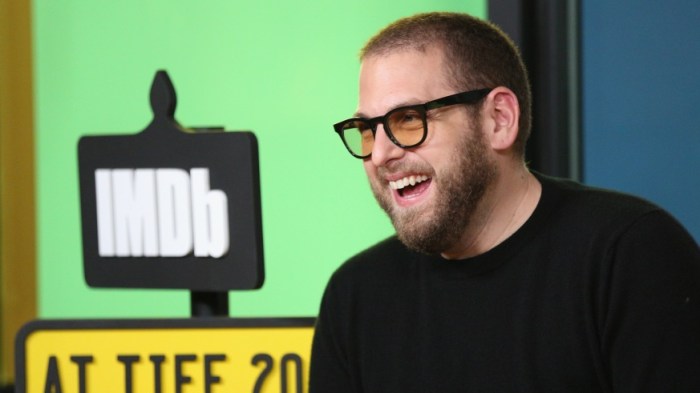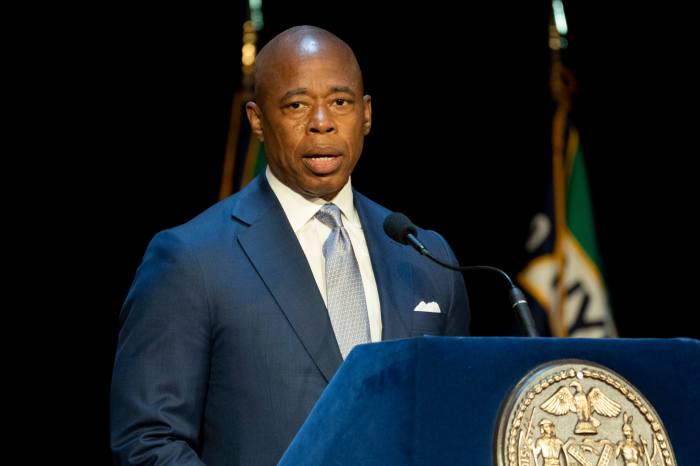“In a world driven by sex, it’s surprising the lack of clarity there is when it comes to female pleasure.”
If that opening line made you uncomfortable, that is part of the problem.
In Barbara Miller’s new documentary “#FEMALE PLEASURE” the taboo nature of talking about a woman’s sexuality is explored through the eyes of five fiercely brave women who have each gone through their own trials and tribulations in regards to sex. Miller sat down with Metro to elaborate on her inspiration for directing the powerful new film and talk about what she hopes “#FEMALE PLEASURE” will ignite in society.
Director Barbara Miller talks powerful new documentary #Female Pleasure
What first inspired you to work on and direct “#FEMALE PLEASURE?”
Working as a film director all over the world, I was always wondering how women today, in the 21st century, really feel and why it’s still a huge taboo when it comes to their most intimate relationships: with themselves as women, with their own bodies and with their sexuality. For most women worldwide, sexuality still today is an obligation and not a choice or pleasure — and that’s a real disaster. Searching for the reasons and roots of the discrimination against women and their sexuality, I discovered that [with] all five major world religions or world cultures, the boundaries blur more and more and demonize the female body. Women and their bodies are blamed as sinful, shameful, unworthy and as the source of all bad things that are happening in the world. These two things were the starting point for this difficult and adventurous journey to realize “#FEMALE PLEASURE.”
How did you decide on/choose the women who are featured in the film?
Realizing that all five major world religions are demonizing the female body and female sexuality, I decided to search for one woman from each religion. I was looking for courageous women who broke the taboo of silence and dare to talk about female sexuality. It was important to me that these women already did the first step into the public so that they were really aware of the danger and the harsh reactions their actions could cause. That’s how I came across “Unorthodox”-bestselling author Deborah Feldman, founder of the first Indian sexual-education website Vithika Yadav, Somali anti-FGM activist Leyla Hussein, former nun Doris Wagner and vagina-artist Rokudenashiko from Japan.
All of the women are truly breaking the silence on normally-deemed “taboo” topics — why do you think there is still such a stigma in regards to talking about women’s sex life, pleasure, etc.?
Leyla Hussein, one of the protagonists of “#FEMALE PLEASURE,” talks about the choir of fake orgasms moaning around the world. For me, that’s a strong symbol. For centuries women have been told that because of their sinful bodies, they are worthless, they don’t count and they [cannot] comply. Women still carry these ideas deep down in their veins, and a lot of men think that too. You have to be more beautiful, more perfect, nicer, kinder, more willing — then you are going to be accepted and recognized. The booming beauty industry is a strong sign of it. As a consequence, women also don’t dare say in bed what they really want, what they like and what their needs are. They prefer to please the partner and fake an orgasm instead of communicating what arouses them or that they [maybe] are part of the 70% of women that don’t reach an orgasm through penetration but through the stimulation of the clitoris.
On the other hand, mainstream pornography plays its part in showing women as objects, that never say no, willing to do everything men want, not what they want. It shows sex combined with violence and humiliation against women. Caressing, kissing and especially the clitoris is inexistent. And the female orgasm has no importance, the climax is always the male orgasm. It comes from the same ideas, only the “packing” is different. The female body is just a dirty, worthless object there to satisfy men. Self-determined female sexuality is missing, and that’s what our kids nowadays are growing up with when they learn about sex. We still shy away to talk to them about it and help them to understand that this is not how most women enjoy sexuality.

What were some of the most shocking bits of information you learned while filming?
Even though the film shows that major world religions have preached for thousands of years the same demonization of the female body, it’s not a film about religion. “#FEMALE PLEASURE” shows the patriarchal structures and the mechanism of power that lay behind it. The misuse of religion and tradition to discriminate against half of the world’s population is the real problem. It still plays a strong role in today’s societies. In Japan, for example, Rokudenashiko [was arrested] for her funny, joyful vagina-art in a country where huge penises are carried through the streets for fertility celebrations.
I also learned that sexual violence is still a huge taboo today. Over 80% of rapes are not reported, often because they happen in families and among friends. The affected persons feel ashamed, they blame themselves, and society and the courts are protecting the perpetrators. Only around 10% of the reported rape-cases lead to a conviction with the same old arguments of “victim” blaming: What were you wearing? Were you drunk? Did you behave properly?
Was there any pushback or negative feedback from either the communities you visited or anywhere else while working on “#Female Pleasure?”
It was very difficult to shoot the scene where Vithika Yadav our Indian activist, talks to a fundamentalist guru. He was open to talk, but after a while, his followers built a circle around us and at one point we had to hurry away out of fear of being beaten up. Also in New York, in the Hassidic community, the tension was tangible. Just a week before my camerawoman and I came for shooting some impressions, a camera team was attacked —their camera and all the material was destroyed.
Overall what do you hope audiences take away from the film?
I hope that through “#FEMALE PLEASURE” we realize that in our modern societies—like in the US, in Europe and all other “secular” societies—these old mechanisms are still vivid and active. That’s how we can start changing them finally. The five women are incredible positive examples, even though they went through very difficult experiences in their lives. They don’t want to be seen as victims but as activists, as strong women who are fighting for a change, with high spirits and positive energy. They are real role models and it’s overwhelming to experience women all over the world rise to claim their rights. It’s needed to involve men in this fight, like the protagonists in the film do. It’s essential that men stand up for women and equality. Because only together, side by side, we can finally change things once and for all.
“#FEMALE PLEASURE” hits theaters Oct. 18

